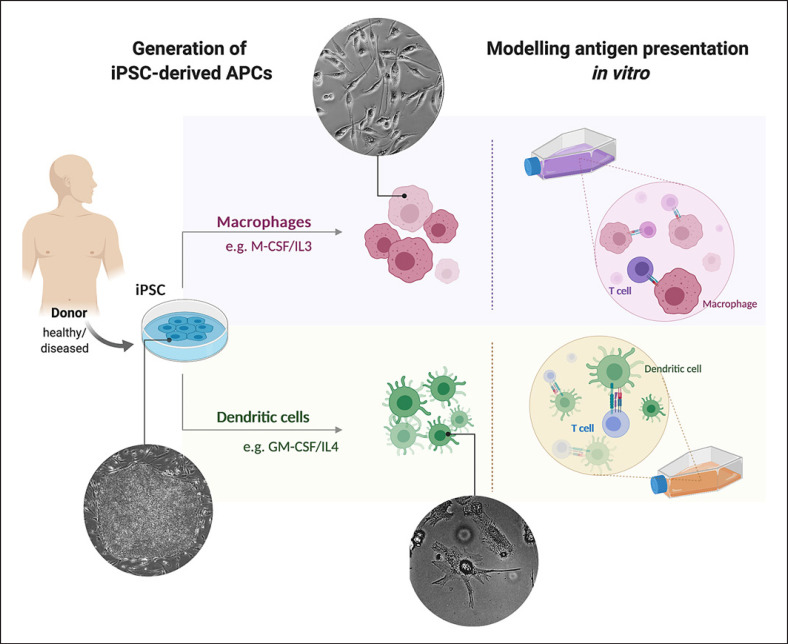Fig. 1.
Potential of induced pluripotent stem cells (iPSC)-derived antigen-presenting cells (APCs) for in vitro modeling of T-cell interactions. Left: Generation of iPSC-derived APCs: iPSC can be generated from easily assessable donor material, such as skin biopsies or blood samples, by overexpression of specific transcription factors. iPSC can be differentiated in vitro into different APCs, such as dendritic cells or macrophages, using specific lineage instructive cytokines (e.g., IL-4 and GM-CSF or IL-3 and M-CSF, respectively). Right: Modeling antigen presentation in vitro: Subsequently, co-cultivation of the iPSC-derived APCs with autologous or allogeneic T cells derived from peripheral blood or iPSCs can be performed to study antigen presentation in vitro (created with BioRender.com).

